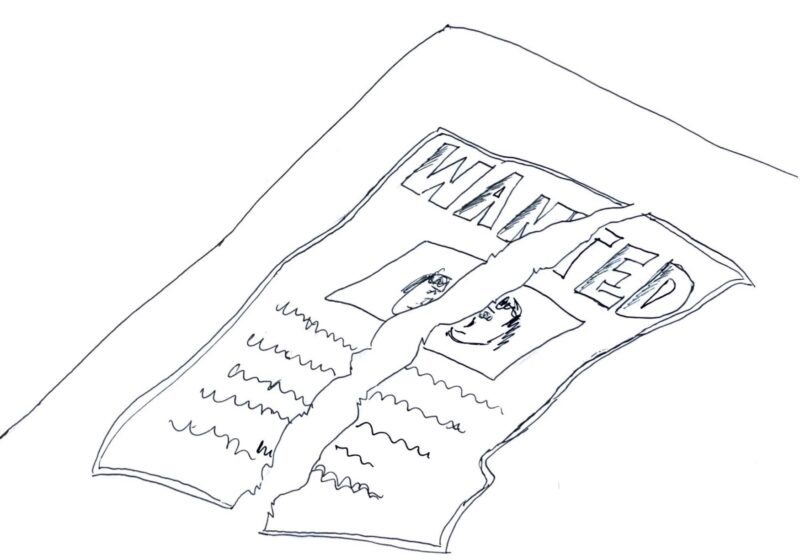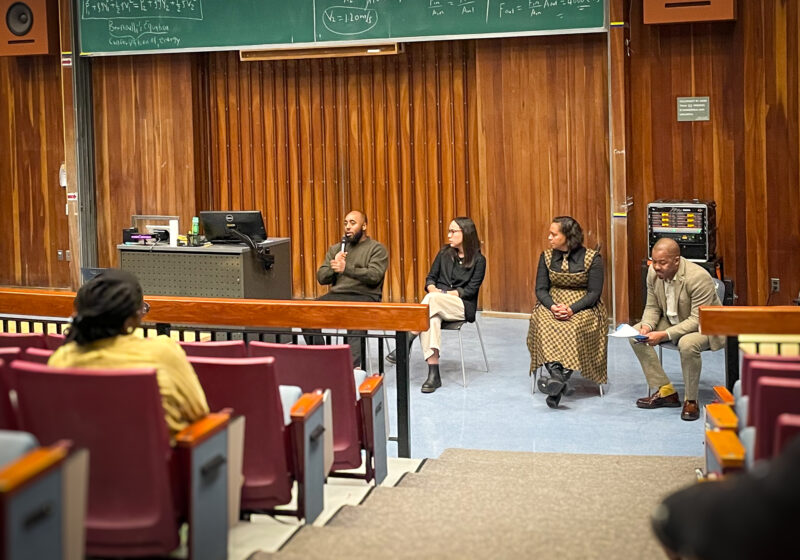This past Monday, the University joined the “club” — gaining notoriety with numerous higher-level educational institutions that are dealing with a rise in antisemitism.
Time and time again, we see the hateful messaging that we, as a University community, can presume were motivated by disdain for Jewish students and faculty. I will not sit idly by while this blatant hatred occurs.
Free speech is the foundation on which our democracy stands upon. Expression allows people to effectively communicate their grievances while being heard in society. What happened last week isn’t free speech. It was intimidation, fear, and a failed effort to strike back hurtfully against Jews on campus.
I have tried to rationalize the actions and messages of groups such as Jewish Voice for Peace (JVP) following the hanging of the ‘wanted’ posters. While this group is peaceful at times, it is comments like their statement Tuesday night that sway me away from their cause and rationale.
The JVP statement in part read, “While we do not know who put up these posters or the intention behind it, we view these posters as an attempt to shed light on administrators and professors’ support for the Israeli Military’s destruction of Gaza.”
Make no mistake: These posters were not “an attempt to shed light.” It was a false and libelous attempt to trick the University community into supporting a cause they are ill-informed about. On some posters, blatant lies have been spewed with largely disproportionate facts and figures, including directly blaming the administration for war crimes, genocide, and the deaths of Palestinian civilians.
It is not just the blatantly untrue contents, but the material itself, which draws me to conclude antisemitic violence. Labeling the posters with “wanted” provides a uniquely dangerous situation, in which actors are inciting violence against administrators and Jews.
JVP’s response to such violent and hateful sentiment and language makes it harder for me to support any group that is calling for the “liberation of Palestine” on this campus. While I sympathize with the death of any civilian in a military conflict, one needs context to understand the full gravity of our current geopolitical situation.
But, we cannot forget the origin of this conflict.
1,500 innocent people were kidnapped, killed, dragged through the streets, and many more are still being held hostage, including several Americans, resulting from the events of Oct. 7. This fact has been disregarded by many on our campus. Instead of recognizing these facts, some have justified their actions targeting Jewish individuals by trying to ignorantly forget Oct. 7. We must never forget that day and all the people lost.
Firstly, I would like to say one thing clearly. Jewish students on this campus deserve to be heard, and Jews on campus will not be silenced for their support of Israel. Similarly to Palestinians who protest for friends and family affected by the conflict, the solidarity Jews and Israelis have on campus are for the same justifications. The multifaceted angles of this conflict give leniency to both sides who are struggling with tremendous loss and grief. Both sides deserve to be heard and to live in peace.
I am ashamed that fellow students could do such vile things, by reposting and sharing content that by definition is antisemitic on social media. The Oxford Reference’s definition of antisemitism is “hostility to or prejudice against Jewish people.”
Since the incident, President Sarah Mangelsdorf has released a statement condemning the protesters, finally calling the vandalism what it is: antisemitism. While I am happy her words finally came to light, we must not stop here.
In the future, we must call for peaceful protests, respect, dialogue, consensus, community, and tolerance for each other. While we can all fight over definitions and semantic wording as a University community, we must not forget the bigger picture. Millions of innocent people have been dragged into this conflict’s ugly bowels.
The University must continue to stop this violent rhetoric against Jews along with preventative steps to avoid further escalations.
We must continue to stand up for the Jewish community in today’s unstable world — even in 2024 at the University, where it seems safety still can’t be achieved.





